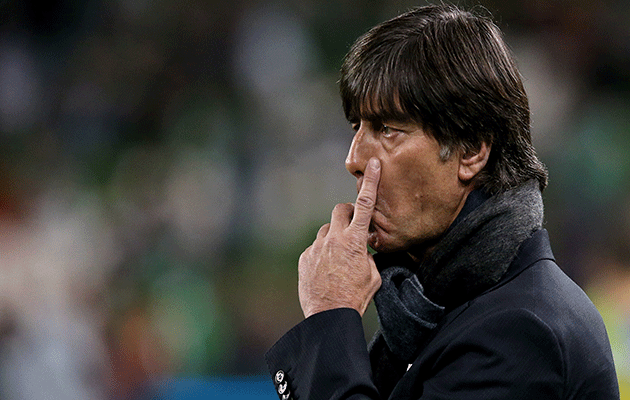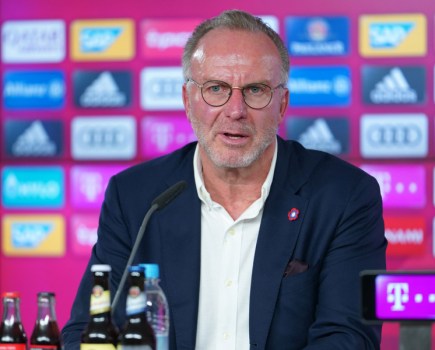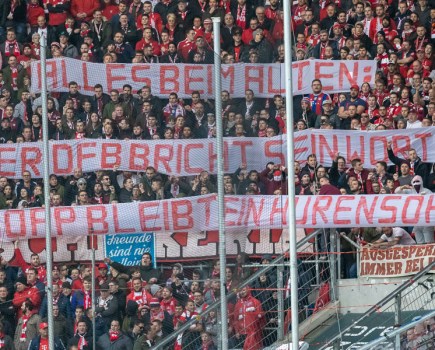1. The world champions stumble across the Euro 2016 qualification line
Jogi Löw’s side might have finished top of their pool, thus securing a place in their 12th straight European finals. But didn’t they make heavy weather of their final two Group D fixtures, carelessly succumbing to a 1-0 away defeat to the Republic of Ireland and needing a late winner from substitute Max Kruse to see off Georgia in Leipzig on Sunday.
In both games, the Nationalmannschaft were guilty of spurning far too many scoring opportunities and if they are to pick up a fourth continental title next year, will have to rediscover that killer instinct.
Thomas Müller, their top marksman in qualification with nine, simply cannot be expected to fire all the bullets. Others have to pitch up at the range too and that means more end-product from the likes of Marco Reus – who was poor against the Georgians – and Mesut Ozil, who has gone from eight goals in the World Cup 2014 qualifiers to zero en route to France.
Another problem for the Bundestrainer is the captaincy. Because of injuries, Bastian Schweinstiger only appeared in four of the ten pool games and whatever his leadership qualities and know-how, a skipper has to be on the pitch.
2. Sane files into the national team waiting room
Every Nationalmannschaft squad for a big tournament has its share of eleventh-hour inductees, in-form players whose bandwagon becomes a runaway juggernaut and one young man definitely picking up speed is Schalke’s 19-year-old wide attacking midfielder, Leroy Sane.
Full of goals, speed and invention, the teenager has been cutting quite a dash for the Gelsenkirchener this season and further enhanced his reputation last week with two goals on his debut for the Under 21s (Germany easily beating Finland 4-0 in a European Championship qualifier).
Although he still has much to learn – especially insouciant in his tracking back and prone to selfishness – he is a natural-born game-changer, someone who could be very useful impact substitute in France. Too much, too soon ? Not if you saw him score against Real Madrid in the Champions League back in March. The son of former Senegal, Wattenscheid and Freiburg striker, Souleymane Sane.
3. Spare a thought for ‘Der Bomber‘
All lovers of German football would have shed tears following the announcement that legendary ex-Bayern Munich and West Germany centre-forward Gerd Müller was suffering with Alzheimer’s.
A copper-bottomed guarantee of goals in the 1960s and 70s – netting 68 in 62 appearances for his country and 365 in 14 seasons in the Bundesliga with Bayern – ‘Der Bomber‘ never was more dangerous than on the big occasion, firing in the winner against Holland in the 1974 World Cup final, hitting a double as the West Germans overcame the Soviet Union in the 1972 European Championship showpiece and providing much of the firepower for Bayern’s three Champions’ Cup triumphs in 1974, 1975 and 1976.
https://www.youtube.com/watch?v=TESGG56ggC8
After a close shave with alcoholism, Muller was a Bayern youth team coach for over two decades, but now faces his sternest opponent of his glory-filled life.
4. Time for the kiss of death?
Interesting that coaches of the two lowest-placed clubs in the Bundesliga, Alexander Zorniger of Stuttgart and Hannover’s Michael Frontzeck, each received the dreaded vote of confidence on Sunday.
At almost the same time as Stuttgart director of sport, Robin Dutt, was gushing with praise for Zorniger at an assembly of club members (“He fits perfectly here.”), new Hannover chief executive, Martin Bader was extolling the virtues of Frontzeck in a TV studio: “He’s a real pro. He absolutely knows the football business. He has this great authority and is calm and composed. That could be worth its weight in gold in a relegation fight.”
Bader also admitted that the current Hannover squad was ‘imbalanced’ and hinted at a winter break recruitment drive. Their scouting department certainly will have to up their game. Of the half-dozen signings they made last summer, only one (full-back Oliver Sorg) has gone on to start regularly.
5. One Swiss out, one Swiss in
In need of a new hand on the first team tiller following the early-season resignation of coach Lucien Favre, Mönchengladbach’s rumoured enthusiasm for Austrian national team boss, Marcel Koller, does seem to make good sense.
The mastermind of Austria’s flawlesss qualification for Euro 2016, the Zurich-born Koller is a wonderful tactician and team-builder, has substantial experience coaching in the Bundesliga with Köln and Bochum and has made it known on several occasions that he prefers the day-to-day involvement of club football to federation work.
Just one major sticking point, though. Koller will only be available after the Euros and are Gladbach preparted to wait ? The obvious solution for Borussia would be to stick with interim coach Andre Schubert until the end of the season and judging by his results so far – three wins out of three in the German top-flight – they could do far worse.







